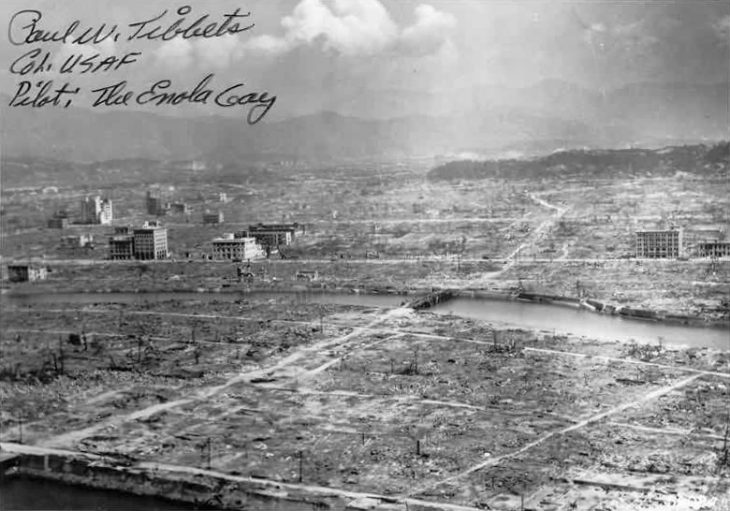
Word of the Day: Existential
The Dictionary.com word of the day for today is existential / ˌɛg zɪˈstɛn ʃəl, ˌɛk sɪ- /. The little mark before stɛn indicates that that syllable has the primary stress, and the little mark, under the line, before ɛg indicates a secondary stress. In case you haven’t been paying attention to the campaign for the Democratic nomination to run for president in 2020, the word existential has become quite popular. Elizabeth Warren (D MA) said in a recent candidates’ debate, that global climate change “is the existential threat. It is the one that threatens all life on this planet.” Beto O’Rourke (D TX), who has since dropped out of the race, said, “Our greatest existential threat is climate change.” According to CBS News, “Joe Biden called out President Trump as an ‘existential threat’ to the U.S. in a campaign appearance in Iowa Tuesday” (https://www.cbsnews.com/news/biden-trump-existential-threat-to-us/). In an interview, candidate Corey Booker said, “You know we see an existential crisis in this country when our suicide rates, opiate addiction, and having a life expectancy go down–Life expectancy is going down for all Americans, it’s going for white men–the farmer suicide rate is as high as it’s been since since [sic] the Great Depression” (https://crooked.com/podcast/2020-cory-booker-on-radical-love-and-the-filibuster/). In responses to questions submitted by the New York Times, Andrew Yang said, “Absolutely. America needs to rejoin the rest of the world in formally recognizing the threat posed by climate change and work with all nations to combat this existential crisis” (https://www.nytimes.com/2019/04/18/us/politics/climate-change-2020-democratic-candidates.html).
So what does this word existential mean? It has two meanings, according to www.dictionary.com. The first is “of or related to existence.” The second has to do with existentialism, a philosophical position that became popular in the 20th century, so we’re going to ignore that meaning. And what does existence mean? Simply, the “state or fact of existing; being” (https://www.dictionary.com/browse/existence?s=t). In other words, when a political candidate asserts that this or that thing is an “existential threat,” they are saying that life as we know it could come to an end if we do not do something about immediately.
So over 61 years ago, Linus Pauling, winner of two Nobel Prizes, presented a petition to the United Nations that was signed by over 9,000 scientists around the world demanding an end to the testing of nuclear weapons. The first nuclear weapons test happened in 1945, right before the first two uses of nuclear weapons in human history, the bombings of Hiroshima and Nagasaki. Nuclear weapons were considered an existential threat to human kind, indeed to all life on Earth (except for cockroaches, which, we were told, can survive even a nuclear holocaust). When I was a kid growing up in Pennsylvania, we actually had drills to plan for nuclear war. The basement of my the Sunday School building at my father’s church, Salem Lutheran Church in Bethlehem, PA, was designated an official fall-out shelter.
The reason that nuclear war was presented as an existential threat was that the Soviet Union and the United States had enough nuclear weapons to destroy everything, even without the radiation that would follow a nuclear war. It was, in a sense, the military strategy of both countries. Donald Brennan, a policy analyst, coined the name of this strategy, “Mutually Assured Destruction” (MAD). So on the one hand, had a nuclear war between the two superpowers ever taken place, there is a very good chance that life on Earth would have come to an end. On the other hand, the very fact that both sides knew a war would end in mutual destruction made such a war unthinkable, and as a result there has not been a world war since the dropping of the bomb on Hiroshima.
So what about the claims that climate change or Donald Trump or the opioid crisis are existential threats? They’re actually gross exaggerations. Climate change will happen gradually, and human beings are very good at adapting to a wide variety of climatic conditions—people live in Siberia and in the Sahara. Donald Trump has to deal with a House that opposes everything he does. The opioid crisis affects actually very few people—10 times more people die from cigarettes every day, but nobody talks about the existential threat of cigarettes.
So we might ask why it is that these politicians use the term existential? Perhaps they feel they need to raise the stakes, to scare people, so that people will give them more power. People who want to gain power or want to maintain their power are good at trying to scare people. When people are afraid, they want someone to reassure them, to tell them that they have the solution to the problem.
Personally, I believe that it is the politicians and other leaders, the people who desire to exercise power over other people, whether they are dictators, presidents, governors, or just college presidents, who are the real existential threat.
The image is the “Aftermath of the atomic bomb explosion over Hiroshima, August 6, 1945” (https://en.wikipedia.org/wiki/Mutual_assured_destruction#/media/File:Hiroshima_aftermath.jpg